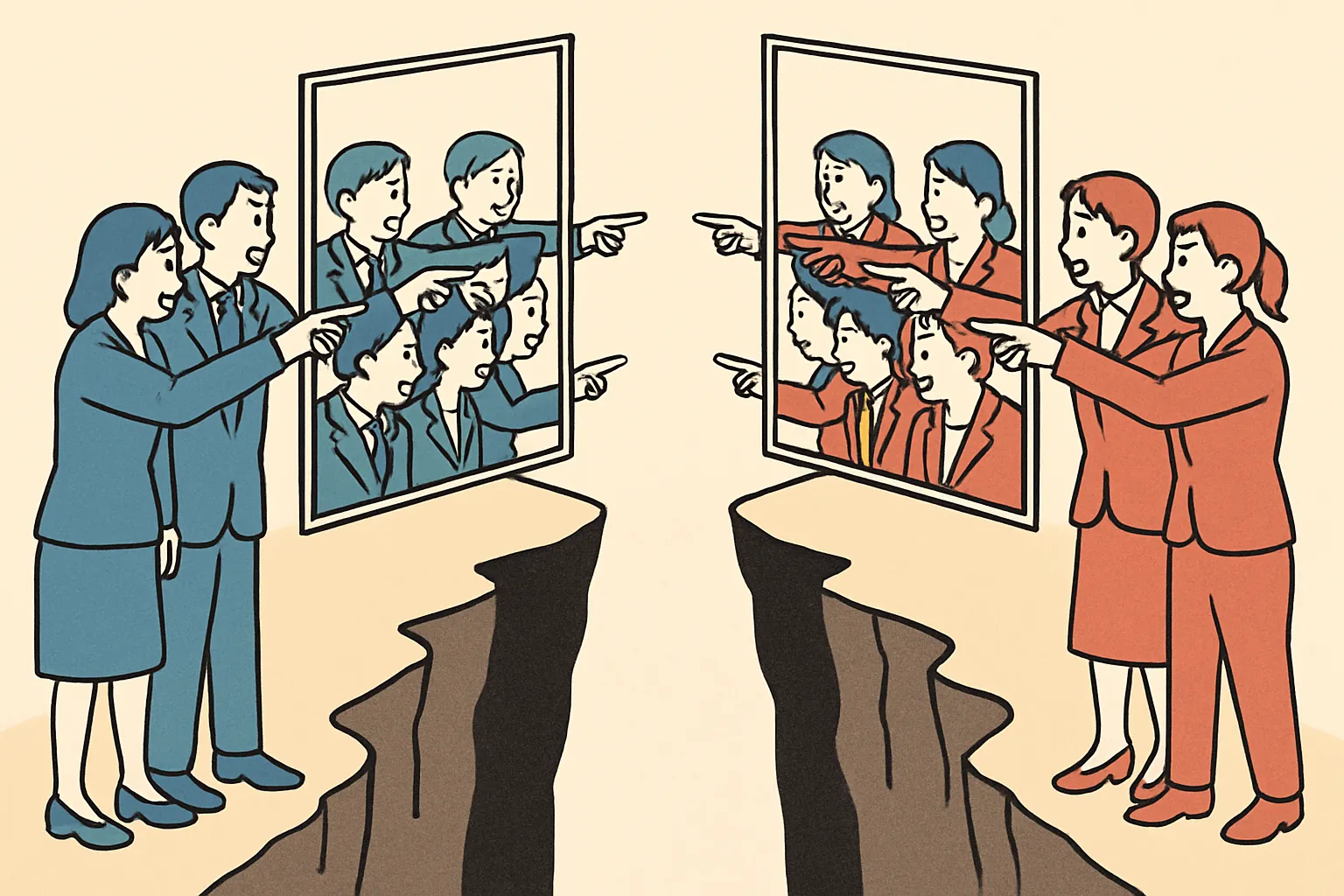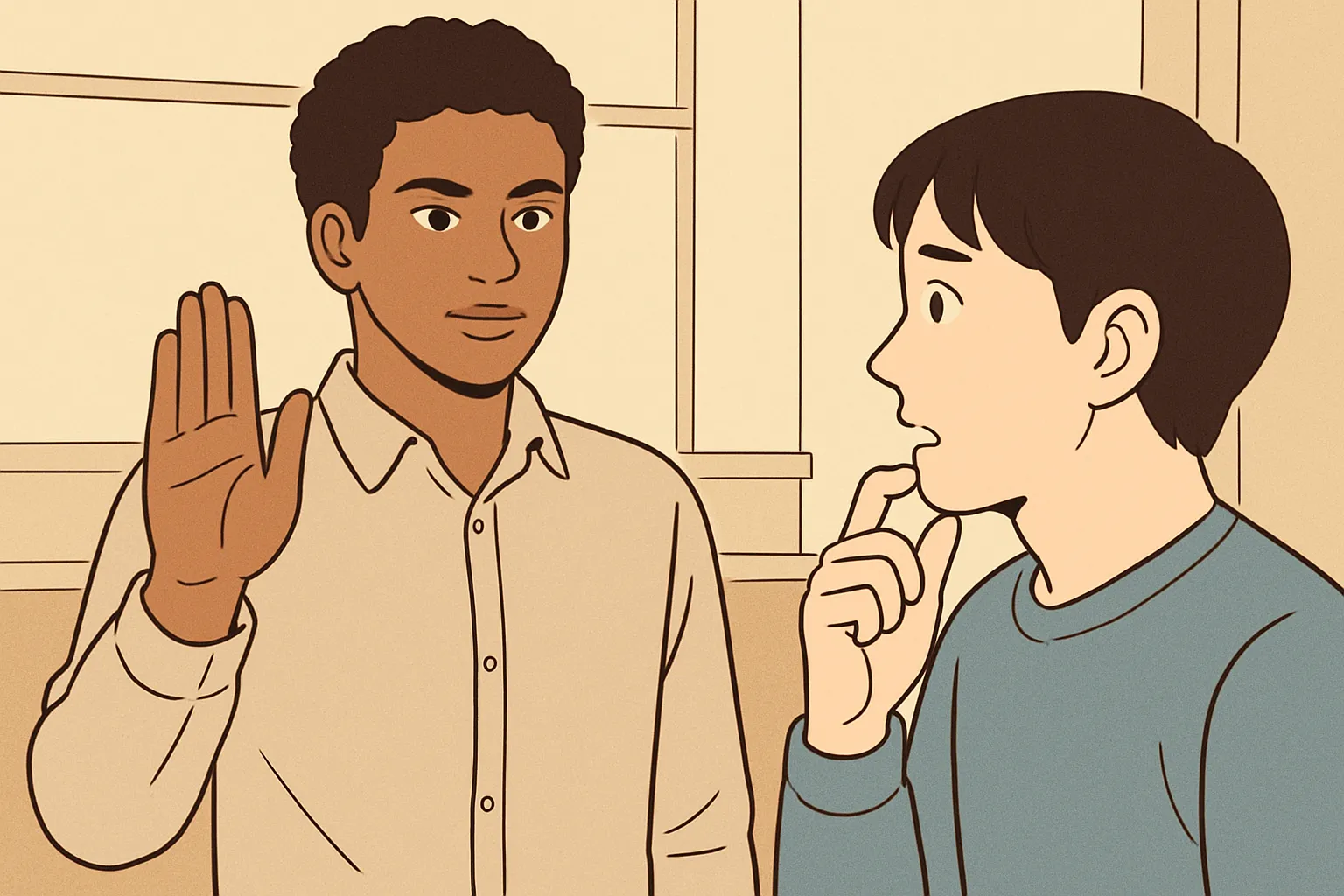K-Drama Love Talk: How to Express Hurt Feelings Like a Pro
Hello! This is Maeil Hangeul, here to upgrade your Korean skills!
Have you ever been in a situation where you felt a little sad or disappointed by your partner, but you didn’t know how to say it without starting a fight? It’s a tricky situation in any language!
These days in Korea, many people are talking about the hit romance drama “Seoul Love Signal.” Fans love it not just for the romance, but for how the main couple communicates so maturely! They talk about their feelings openly and solve problems together. Today, we’re going to learn how you can do the same by constructively expressing your feelings in Korean. Let’s learn how to talk about what’s on your mind in a healthy and loving way!
Core Expressions for a Healthy Conversation
Here are a few key phrases that will help you open up a conversation with honesty and kindness.
1. 솔직히 말하면… (sol-ji-ki mal-ha-myeon)
- Pronunciation: [sol-ji-ki mal-ha-myeon]
- English Meaning: To be honest… / Frankly speaking…
- Detailed Explanation: This is the perfect phrase to gently signal that you’re about to say something serious and from the heart. It’s a soft opener that prepares the listener for your true feelings, showing that you’ve thought about what you want to say. It’s polite and can be used with anyone you are close to.
2. ~(해)서 서운했어 (…-hae-seo seo-un-haess-eo)
- Pronunciation: […-hae-seo seo-un-haess-eo]
- English Meaning: I felt sad/disappointed because…
- Detailed Explanation: This is the star expression of our lesson! 서운하다 (seounhada) is a unique and important Korean emotion. It’s not quite anger, but a mix of sadness, disappointment, and feeling slightly hurt, especially by someone you care about and trust. By using this phrase, you are focusing on your feelings (“I felt…”) rather than accusing your partner (“You did…”). It’s the key to constructive communication!
- Example: 네가 약속을 잊어버려서 서운했어. (I felt sad because you forgot our promise.)
3. 내 마음을 알아줬으면 좋겠어 (nae ma-eum-eul a-ra-jwoss-eu-myeon jok-gess-eo)
- Pronunciation: [nae ma-eum-eul a-ra-jwoss-eu-myeon jok-gess-eo]
- English Meaning: I hope you can understand how I feel.
- Detailed Explanation: This is a beautiful way to ask for empathy.
내 마음means “my heart” or “my feelings,” and알아주다means to acknowledge or understand someone’s situation. The grammar~었으면 좋겠다means “I wish” or “I hope.” You’re not demanding that they agree, but simply asking them to see things from your perspective.
Example Dialogue
Let’s see how these expressions work in a real conversation. Imagine Minjun was on his phone during his whole date with Jisu.
- A (지수/Jisu): 민준아, 우리 얘기 좀 할까?
(Minjun, can we talk for a bit?) - B (민준/Minjun): 응, 무슨 일이야?
(Sure, what’s up?) - A (지수/Jisu): 솔직히 말하면, 어제 데이트할 때 계속 핸드폰만 봐서 좀 서운했어. 내가 안 중요하게 느껴졌어.
(To be honest, I felt a bit hurt yesterday because you kept looking at your phone. It made me feel like I wasn’t important.) - B (민준/Minjun): 아… 정말 미안해. 급한 회사일 때문이었어. 미리 말했어야 했는데.
(Oh… I’m so sorry. It was because of an urgent work matter. I should have told you beforehand.) - A (지수/Jisu): 그랬구나. 말해줘서 고마워.
(I see. Thanks for telling me.) - B (민준/Minjun): 아니야, 내가 미안하지. 앞으로는 꼭 먼저 말해줄게. 내 마음을 알아줬으면 좋겠어.
(No, it’s my fault. I promise I’ll tell you first from now on. I hope you can understand my feelings.)
See? No fighting! Just clear, honest communication that brings them closer.
Culture Tip: The “I-Statement” Trend in Korea
In the K-drama “Seoul Love Signal,” the couple is famous for using what’s called ‘나 전달법’ (na jeondal-beop), which literally means the “I-delivery method” or “I-statements.”
This communication style is becoming very popular among young couples in Korea who want to build healthier relationships. Instead of starting a sentence with “You” (너는…), which can sound like an accusation, they start with “I” (나는…).
Our key phrase, ~해서 서운했어, is a perfect example of this!
* Accusation (You-statement): “You always ignore me!” (너는 항상 나를 무시해!)
* Constructive (I-statement): “I felt sad because it seemed like you weren’t listening to my story.” (내 얘기를 안 들어주는 것 같아서 서운했어.)
When you use an “I-statement,” you invite your partner to understand your feelings rather than forcing them to be defensive. If you master this, you’ll sound not just fluent, but also emotionally intelligent in Korean!
Wrap-up & Practice Time!
Wow, great job today! We learned some incredibly useful expressions for talking about our feelings in a constructive and loving way, just like in our favorite K-dramas. Remember, focusing on “I feel” (서운했어) instead of “You did” is the secret.
Now, let’s practice!
- Fill in the blank: Your partner was very late to your dinner date and didn’t call. You want to tell them how you felt.
“연락도 없이 늦어서 많이 ___________.”
- Make a sentence: Using
솔직히 말하면..., how would you start a conversation about a small problem with a friend?
Leave your answers in the comments below! We’d love to see you try out these amazing expressions. Keep up the great work






